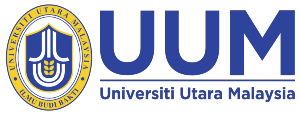MALAYSIA'S FIRST ELECTRONIC RESOURCES CONSORTIUM ENABLES THE ACCESS OF INFORMATION AT ANY TIME
 UUM ONLINE: In a bid to expand access to scholarly digital content to the higher education community, the Higher Education Electronic Resources Consortium has been launched as an impactful resource sharing platform.
UUM ONLINE: In a bid to expand access to scholarly digital content to the higher education community, the Higher Education Electronic Resources Consortium has been launched as an impactful resource sharing platform.
The launch was officiated by the Minister of Higher Education, Dato' Seri Dr. Noraini Ahmad at the Za'aba Hall, Ministry of Higher Education (MOHE), recently.
In her speech she said the establishment of the consortium was the first academic library consortium initiative in Malaysia that would be able to increase the cost-effectiveness of subscribing to information databases.
According to her, the benefits of the Higher Education Electronic Resource Consortium should be disseminated not only to the entire higher education community, but also to the Malaysian community as a whole.
She expressed her confidence that the direction of the consortium would focus on initiatives to develop a one-stop digital academic infrastructure that will function as referral for Malaysians and the global community. In fact, according to her universities had also provided scientific information resources in the form of printed and non-printed materials including materials in electronic format for teaching and learning (TnL) activities at the respective institutions.
"To date, there are more than 11.19 million printed materials and 45.7 million non-printed materials, including electronic materials used by campus communities and research groups, respectively. In fact, every year the libraries at various public universities (PU) spend up to 90 percent of the library collection development budget. This expenditure is to subscribe and obtain scientific information resources in an electronic format that can be accessed online at any time and from anywhere.
"This scenario demonstrates Public Universities’ continued commitment in providing quality and competitive information infrastructure for the sustainability of the higher education ecosystem, thus becoming the hub of higher education in the region. The service has benefited many students, academic staff and researchers during the COVID-19 pandemic," she said at the launching ceremony of the Higher Education Electronic Resources Consortium and Signing of Memoranda of Understanding Between 20 Public Universities.
She further reiterated that each university had a unique reference collection strength based on their respective thrust areas and the sharing of scholarly information resources between PUs had been successfully attained through various resource sharing platforms including Malaysian University Libraries & National Library Network (MyUniNet) and Malaysian Academic Library Catalog (MALCat).
According to her, the platform had brought countless benefits to its users, especially when it involved more than 500,000 denizens of institutions of higher education and the public with more than 23.4 million documents being downloaded. In fact, Malaysian scholarly resources had also been referred to more by more than 145,360 international users. Thus, signifying Malaysia as one of the centres of reference for scientific information by the global community.
She further added that Malaysia's scholarly information hub had also enriched the network of global scholarly information resources developed by institutions of higher education nationwide and until December of 2020, a total of 25 digital repository systems had been developed by the Malaysian Academic Library which were listed in the Directory of Open Access Repositories (OpenDOAR) platform based in United Kingdom.
“Apart from digital scientific information sources, subscriptions to citation databases such as SCOPUS and Incites provide a platform to monitor the impact of research in Malaysia. This source of information becomes an important reference for researchers to generate impactful publications through SCOPUS-indexed quality journals.
"In addition, during the COVID-19 pandemic period, the output of Malaysian scholarly publications still increased and reached 38,728 documents in 2020 compared to 37,866 in 2019," he said.
Dato’ Seri Dr. Noraini said the courage to explore new and challenging things was an important prerequisite to ensure the success of a mission.
According to her, one must be bold to challenge the status quo, must change mind sets, must make a paradigm shift, must think outside of the box and must share resources and expertise.
She also expressed hopes that the Higher Education Electronic Resource Consortium would be able to continue the agenda of improving the quality in terms of providing knowledge resources to the denizens of institutions of higher education and the public.
Attendees at the event also witnessed the signing ceremony of the Consortium MoU by public universities where UUM was represented by the Vice-Chancellor, Prof. Dato’ Dr. Ahmad Bashawir Abdul Ghani.
Meanwhile, the Vice-Chancellor said he welcomed the establishment of the consortium which would bring about benefits to various parties not only to researchers, but also students and academics including the public. This consortium would indeed ensure the sustainability of various aspects in higher education.
According to him, the presence of the consortium would also indirectly allow the above-mentioned parties gain access to information or reference materials digitally easily at any time and from anywhere.
Also present at the event were the Secretary General of MOHE, Dato' Seri Dr. Mazlan Yusoff and the Director General of the Department of Higher Education, Dato' Prof. Dr. Husaini Omar.
